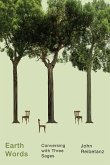For a change Orpheus / listens to the other / musicians once the hum / of his lyre no longer / hangs like moss from branches / in the forest airIn New Songs for OrpheusJohn Reibetanz updates Ovid's poetry. Ovid's words showed him to be a person of deep empathy for natural, animal, and human worlds, and so Reibetanz posits that the Roman writer would likely be eager to take account of all that we have learned about them in the past two thousand years.Ovid would be familiar with recent discoveries about the complex inner lives and societies of non-human animals, and about the intricate interrelationships sustained in forests. The poems in New Songs for Orpheus look at and listen to the real creatures into which Ovid's characters were transformed, acts viewed not as punishment or deprivation, but as a release into other intriguing forms of life. In the human realm, he might find a suitably cataclysmic counterpart to the Trojan War in the barbarities and sacrifices of World War II, or perhaps see an analogue to the Fall of Troy in the fall of the Two Towers in September 2001.The songs Orpheus sings then transform into more contemporary shapes, as characters and incidents from the Canadian musical Come from Away - like those in Ovid's "e;restored"e; world after the flood - are celebrated in a reaffirmation of community after the divisive horrors of 9/11. In all these times and places, metamorphosis brings new meaning into a life, be it human, plant, or animal.
Dieser Download kann aus rechtlichen Gründen nur mit Rechnungsadresse in A, B, BG, CY, CZ, D, DK, EW, E, FIN, F, GR, HR, H, IRL, I, LT, L, LR, M, NL, PL, P, R, S, SLO, SK ausgeliefert werden.









